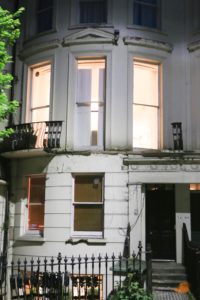A bill proposing that short term and holiday lets must be registered with a local authority in a bid to crack down on commercial operators taking advantage of the sharing economy has been sponsored by Hove MP Peter Kyle.

The ten minute rule bill was introduced in the House of Commons yesterday by Westminster North MP Karen Buck, who said that some landlords were taking advantage of a lack of regulation to make more money while adding pressure to the housing market – and dodging tax.
The bill, which was accepted and will receive its second reading on Friday, proposes a simple online registration for anyone wanting to let out a room or a property on a short term basis.
Ms Buck said: “Good ideas can be undermined when a minority abuse or exploit them, causing harm to others and undermining the wellbeing of the wider community. The sharing economy is fizzing with good ideas and opportunities.
“We are in an era where the potential use of resources—from labour to transport to homes—can be made more of by the speed and flexibility of digital communications, and we should not be putting unnecessary barriers in the way. Yet, that is not the same as saying there should be no rules. Individuals and communities need to be protected, and the rules we agree on must be enforced.
“People who are using Airbnb and others of the various platforms for short and holiday lets sometimes say to me, ‘Why does it matter? Why shouldn’t we, as homeowners, do what we want with our properties?’
“For many of them, it should not matter at all, as they are the occasional hosts—they are the sharing economy—earning a bit of extra cash from a spare room or when they are away. They are aware of their own legal responsibilities and are considerate of neighbours—let them flourish. The problem is that they are not alone.
“Alongside the responsible owner-occupiers are irresponsible ones, illegal sub-letters and an increasingly significant commercial operation seeking to take advantage of potentially higher yields.”
In London, the Mayor of London has put a 90-day limit on how long short term let properties can be leased per year – but London boroughs are finding this difficult to enforce, spending hours trawling websites such as Airbnb and trying to identify addresses.
Ms Buck also said that in the US, where Airbnb is more established, a study found that room rentals would have paid $440million if they were taxed in the same way as hotel rooms.
In Brighton, hoteliers have spoken about the threat to the city’s b&bs which Airbnb poses. The issue of health and safety was also dramatically illustrated when four people were seriously injured when an ornamental balcony collapsed as they stood on it last year.
The balcony on the flat in Montpelier Road had been advertised on the site by the owner as a place to soak up the sun. It remained advertised on the site for a few days after the accident in July, until Brighton and Hove News alerted Airbnb.
The four injured guests are suing Airbnb for compensation after it denied responsibility for the accident.
Ten minute rule bills rarely progress to becoming UK law. However, if they prove popular, governments will sometimes adapt the principles into its own legislation.









